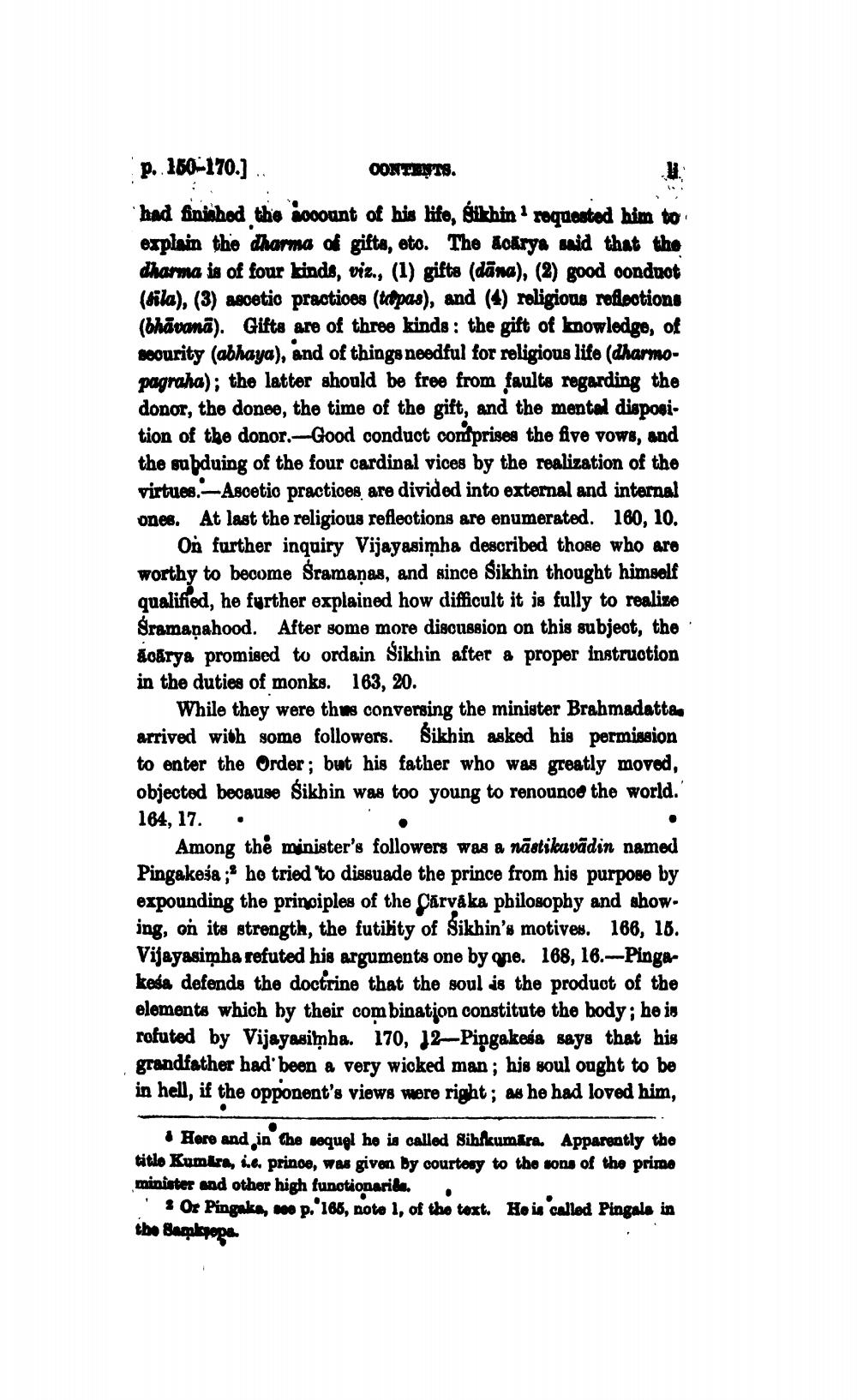________________
p. 160-170.)
OONTENTS. had finished the dooount of his life, śikhin " roquested him to explain the dharma di gifte, ato. The Lorya said that the dharma is of four kinds, viz., (1) gifts (dāna), (2) good oondvot (fila), (3) ascetio practices (topas), and (4) religious reflections (bhāvanā). Gifts are of three kinds : the gift of knowledge, of seourity (abhaya), and of things needful for religious life (dharmopagraha); the latter should be free from faults regarding the donor, the donse, the time of the gift, and the mental disposition of the donor. ---Good conduct comprises the five vows, and the subduing of the four cardinal vices by the realization of the virtues. - Ascetic practices are divided into external and internal ones. At last the religious reflections are enumerated. 160, 10.
On further inquiry Vijayasimha described those who are worthy to become Šramaņas, and since Sikhin thought himself qualified, he further explained how difficult it is fully to realize Šramanahood. After some more discussion on this subjeot, the doarya promised to ordain Sikhin after a proper instruction in the duties of monks. 163, 20.
While they were thus conversing the minister Brahmadatta arrived with some followers. Sikhin asked his permission to enter the Order ; but his father who was greatly moved, objected because Sikhin was too young to renounce the world. 164, 17. .
Among the minister's followers was a nāstikavādin named Pingakeša ;' he tried to dissuade the prince from his purpose by expounding the principles of the Carvaka philosophy and showing, on its strength, the futility of Sikhin's motives. 186, 18. Vijayasimha refuted his arguments one by one. 168, 16.--Pingakesa defends the doctrine that the soul is the product of the elements which by their combination constitute the body; he is refuted by Vijayasimba. 170, 12~Pingakesa says that his grandfather had been a very wicked man; his soul ought to be in hell, if the opponent's views wore right; as he had loved him,
Here and in the soquel he is called Sihikumara. Apparently the titlo Kumkra, .e. prince, was given by courtosy to the sons of the prima minister and other high functionarida. .
' : Or Pingake, so p. 186, note 1, of the text. Ho is called Pingala in tbe Basplagopa




